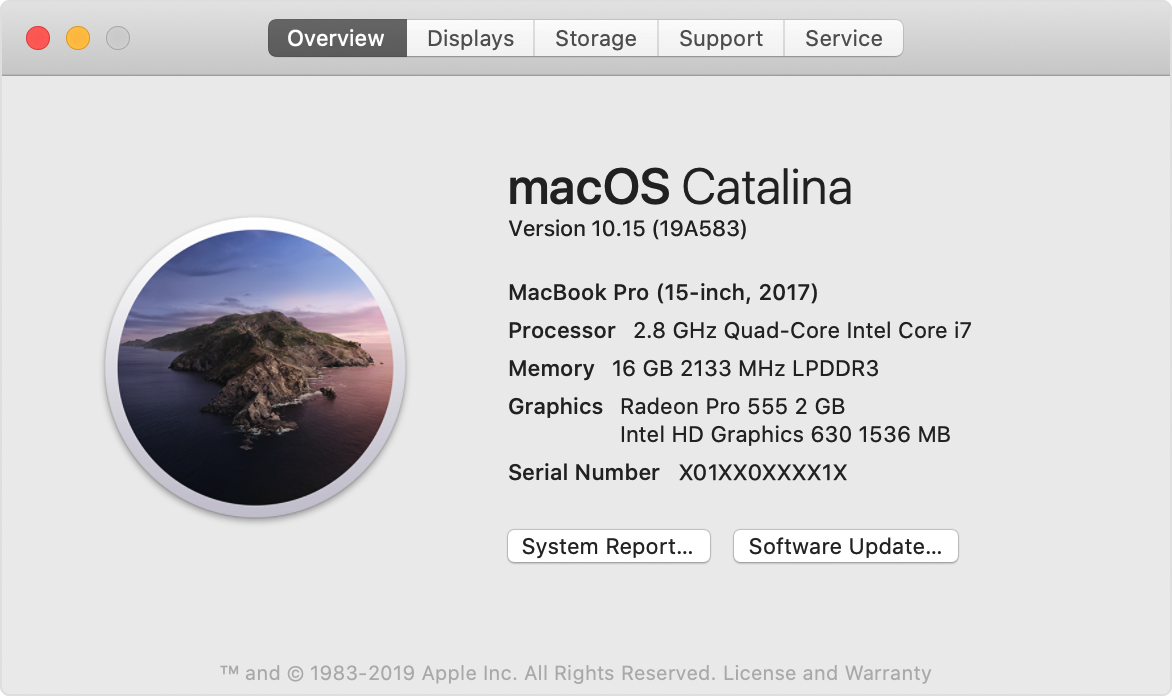As of November 11, 2020, Apple is launching new MacBook and Mac Mini models with Apple's custom built M1 processors. These processors use a different instruction set and will require multiple changes.
Affected Devices
No Mac purchased before November 2020 will be affected.
If your Mac was purchased on or after November 2020,
Select the Apple icon in the top left to open the About this Mac section.
Under Processor, check if Intel is listed or if Apple Silicon is listed.
Existing Programs Compatibility
Existing programs will be launched automatically with Rosetta 2, a program on macOS that converts old programs into the new system. However, this is much slower than if the app supported Apple Silicon. For this reason, most apps may start and run more slowly than expected.
Microsoft Office, for example, is expected to take 30 seconds longer to start on the new M1 chip.
You should check with the applicable software vendor to make sure an application will work on computers using the new chipset.
External Display Compatibility
Apple Silicon Macbooks only support one external display. On the Apple Silicon 2020 Mac Mini, you can connect two displays: one via a thunderbolt port and one via the HDMI port.
BootCamp Compatibility
The new Macs running Apple Silicon are NOT compatible with BootCamp to run Windows.
Virtualization Compatibility
Programs that use virtualization like Citrix/AnyWare, Parallels, VMWare Horizon, or Oracle VM VirtualBox may be extremely slow or buggy or have issues starting. These issues will be especially persistent until mid 2021 when developers are expected to make their applications fully compatible.
Upgrading System Memory
Apple computers using the new M1 chip or any Apple Silicon processors cannot have memory (RAM) upgraded.
Related Articles
Filter by label
There are no items with the selected labels at this time.
